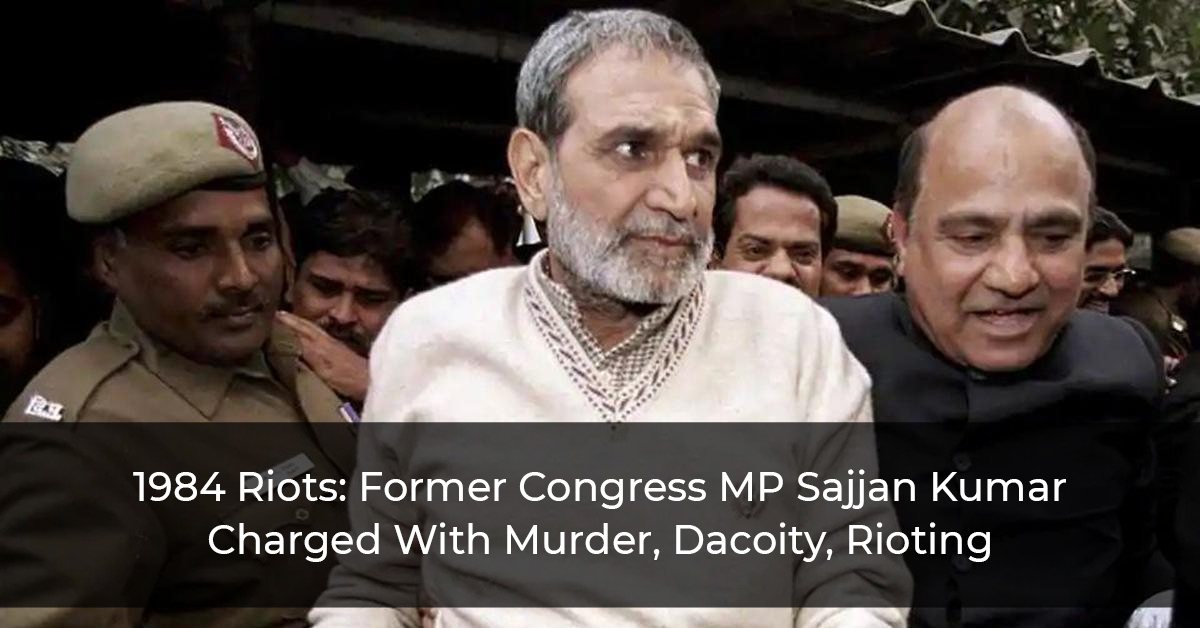Highlights:
- Rioting, murder, and dacoity charges have been filed against former Congress MP.
- The matter has been scheduled for formal framing of charges on December 16.
- In September, the Supreme Court dismissed Sajjan Kumar’s petition for release on medical grounds.
A Delhi court has charged Congress politician Sajjan Kumar in an anti-Sikh riots case involving the death of two Sikh men in Raj Nagar in 1984, Sardar Jaswant Singh and Sardar Tarun Deep Singh.
According to Advocate Harpreet Singh Hora, the court has charged the former Congress MP with rioting, murder, and dacoity under sections 147, 149, 148, 302, 308, 323, 395, 397, 427, 436, and 440 of the Indian Penal Code (IPC).
The complaint was filed as FIR 458/91 at Police Station Saraswati Vihar in Delhi when an eyewitness recognised Sajjan Kumar after viewing a photograph of him.
He stated that the matter had previously been closed as untraced in 1994, and that the SIT had reopened it.
The court has heard arguments from both parties, and the case has been scheduled for official framing of charges on December 16.
Also Read: 14 Civilian Killings in Nagaland Spark Local Agitation; Cops File FIR Against Army Unit
According to the court, after reviewing the oral and documentary evidence gathered by the investigating officer during the course of the investigation, it appears that a mob of several thousand people armed with deadly weapons planned to resort to large-scale looting, arson, or destruction of Sikh property in order to avenge the murder of then-Prime Minister Indira Gandhi by her two Sikh bodyguards.
“The incident of attack on the complainant’s house took place only at the hand of said mob, and in the said attack, not only the complainant’s house and other household articles were looted and destroyed, by fire or otherwise, but also the killing of her husband and son took place, and even the complainant and the other victims suffered injuries at the hands of participants of such mob,” the court order stated.
The court decided that there is also enough evidence on record for this court to establish a prima facie opinion that the accused was not only a participant of the said mob, but also commanded it.


